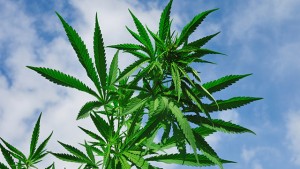 WASHINGTON, DC, USA (CMC) — Four Caribbean Community (Caricom) countries have been named by the United States as major illicit drug-producing countries.
WASHINGTON, DC, USA (CMC) — Four Caribbean Community (Caricom) countries have been named by the United States as major illicit drug-producing countries.
In its 2018 International Narcotics Control Strategy Report, the State Department noted that the Bahamas, Belize, Haiti and Jamaica were also described as major drug-transit countries.
According to Washington, a major illicit drug-producing country is one in which 1,000 hectares or more of illicit opium poppy is cultivated or harvested during a year; 1,000 hectares or more of illicit coca is cultivated or harvested during a year; or 5,000 hectares or more of illicit cannabis is cultivated or harvested during a year.
The report noted that Jamaica remains the largest Caribbean supplier of marijuana to the United States and the Caribbean islands.
“Although cocaine and synthetic drugs are not produced locally, Jamaica is a transit point for drugs trafficked from South America to North America and other international markets,” the report noted, stating that in 2016, drug production and trafficking were enabled and accompanied by organised crime, domestic and international gang activity, and police and government corruption.
“Illicit drugs are also a means of exchange for illegally trafficked firearms entering the country, exacerbating Jamaica’s security situation,” the report stated.
It said that drugs flow from and through Jamaica by maritime conveyance, air freight, human couriers, and private aircraft.
“Marijuana and cocaine are trafficked from and through Jamaica into other Caribbean nations, the United States, Canada, and the United Kingdom. Jamaica is a transit point for cocaine moving from Central America to the United States, and some drug trafficking organisations exchange Jamaican marijuana for cocaine.”
The report noted that factors that contribute to drug trafficking include the country’s convenient geographic position as a waypoint for illicit drugs trafficked from Latin America include its lengthy, rugged, and difficult-to-patrol coastline; a high volume of tourist travel and airline traffic; its status as a major transshipment hub for maritime containerised cargo as well as inadequate educational and employment opportunities for at-risk youth who engage in crime and a struggling economy that encourages marijuana cultivation in rural areas.
The report noted that while the government and law enforcement authorities are committed to combating narcotics and illicit trafficking “their efforts were only moderately effective in 2016 because of insufficient resources, corruption, an inefficient criminal justice system, and the inability of lawmakers to adopt meaningful legislation to combat corruption.
“In 2015, legislation to decriminalise the possession and use of small amounts of marijuana for personal use (including religious purposes) went into effect.”
The State Department also named Belize as the lone Caricom country identified as a major source of precursor or essential chemicals used in the production of illicit narcotics.
Regarding money laundering, Washington named all the15-member Caricom countries “whose financial institutions engage in currency transactions involving significant amounts of proceeds from international narcotics trafficking”.
But it acknowledged that the “complex nature of money laundering transactions today makes it difficult in many cases to distinguish the proceeds of narcotics trafficking from the proceeds of other serious crime. Moreover, financial institutions engaging in transactions involving significant amounts of proceeds of other serious crime are vulnerable to narcotics-related money laundering”.
Washington said that this year’s list of major money laundering countries “recognises this relationship by including all countries and other jurisdictions, whose financial institutions engage in transactions involving significant amounts of proceeds from all serious crime”.
